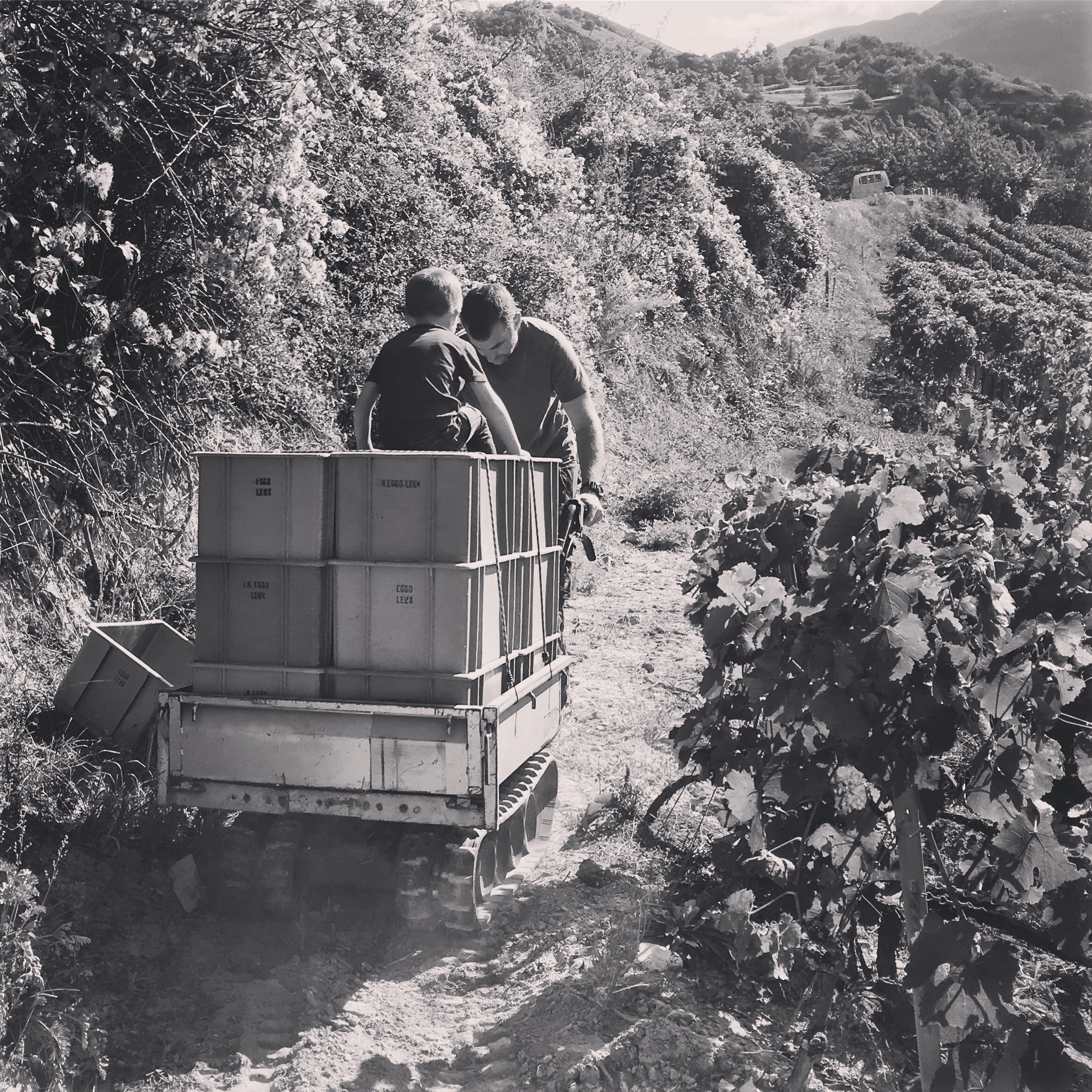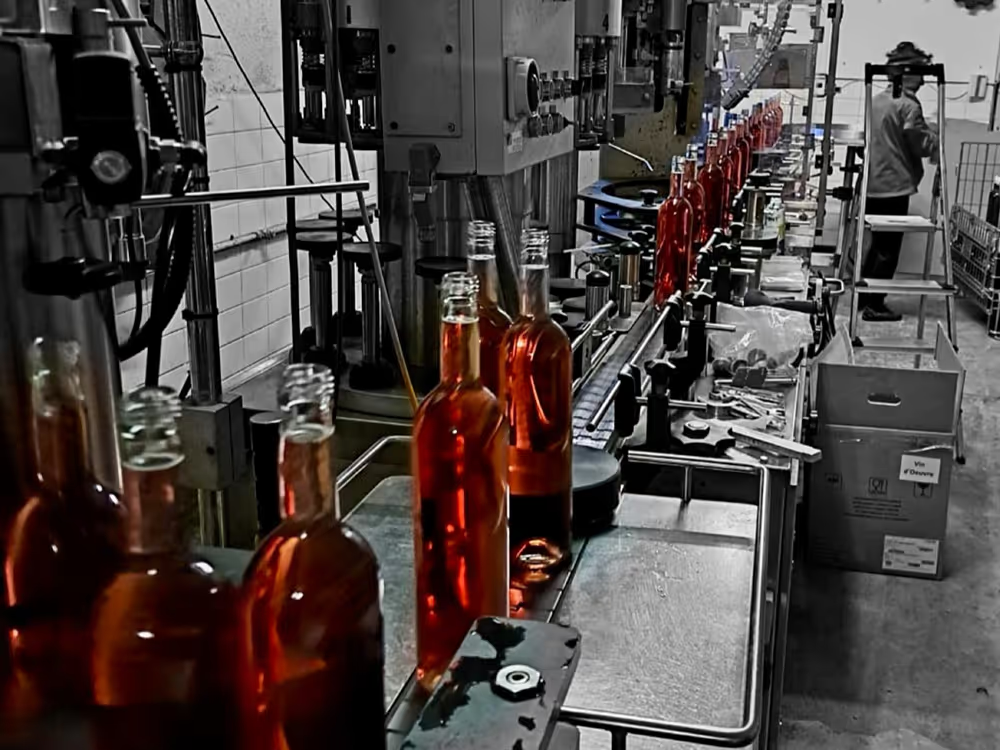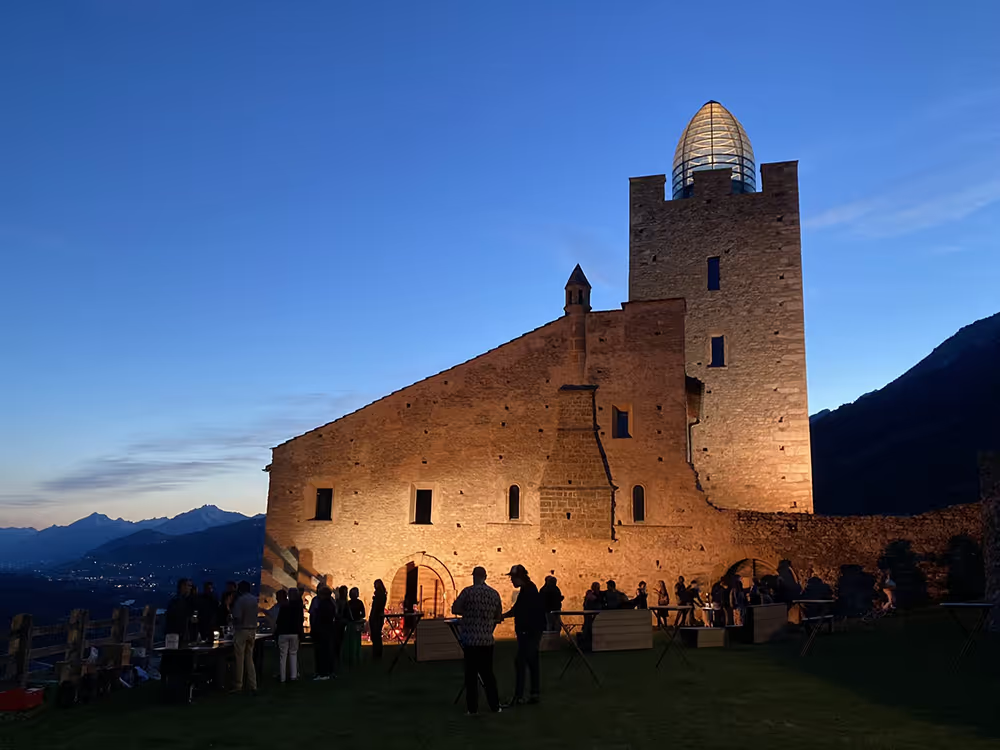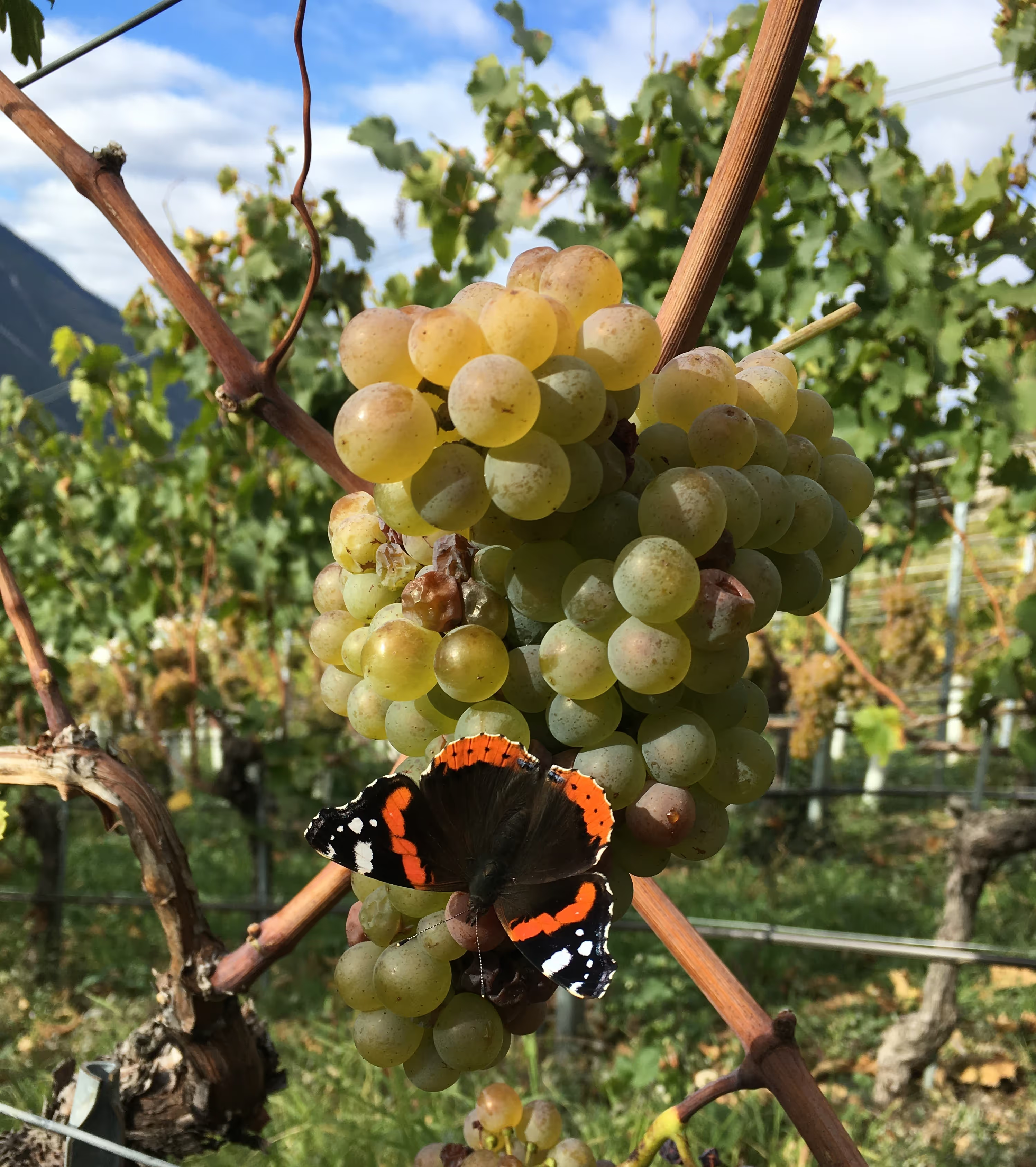
Sustainable viticulture means for us harmonizing economy, environment, and social responsibility.
Every step in our vineyards and cellar follows a holistic approach: economically viable, environmentally gentle, and socially fair. Our ecological transformation is a promise—to nature, to ourselves, and to future generations.
We preserve today what should delight tomorrow: wines crafted with respect for the land and enjoyed with a clear conscience.
Leuk-Stadt lies at the heart of the Pfyn-Finges Nature Park, which stretches from Sierre to Gampel and north to Leukerbad. We are actively involved in cantonal projects such as Vitisol, which is looking for alternatives to the use of herbicides, as well as in networking projects that improve the living conditions for animals and plants. With their diverse flora, our vineyards in Raron and Leuk are among the recognized biodiversity-promoting areas in the canton of Valais.


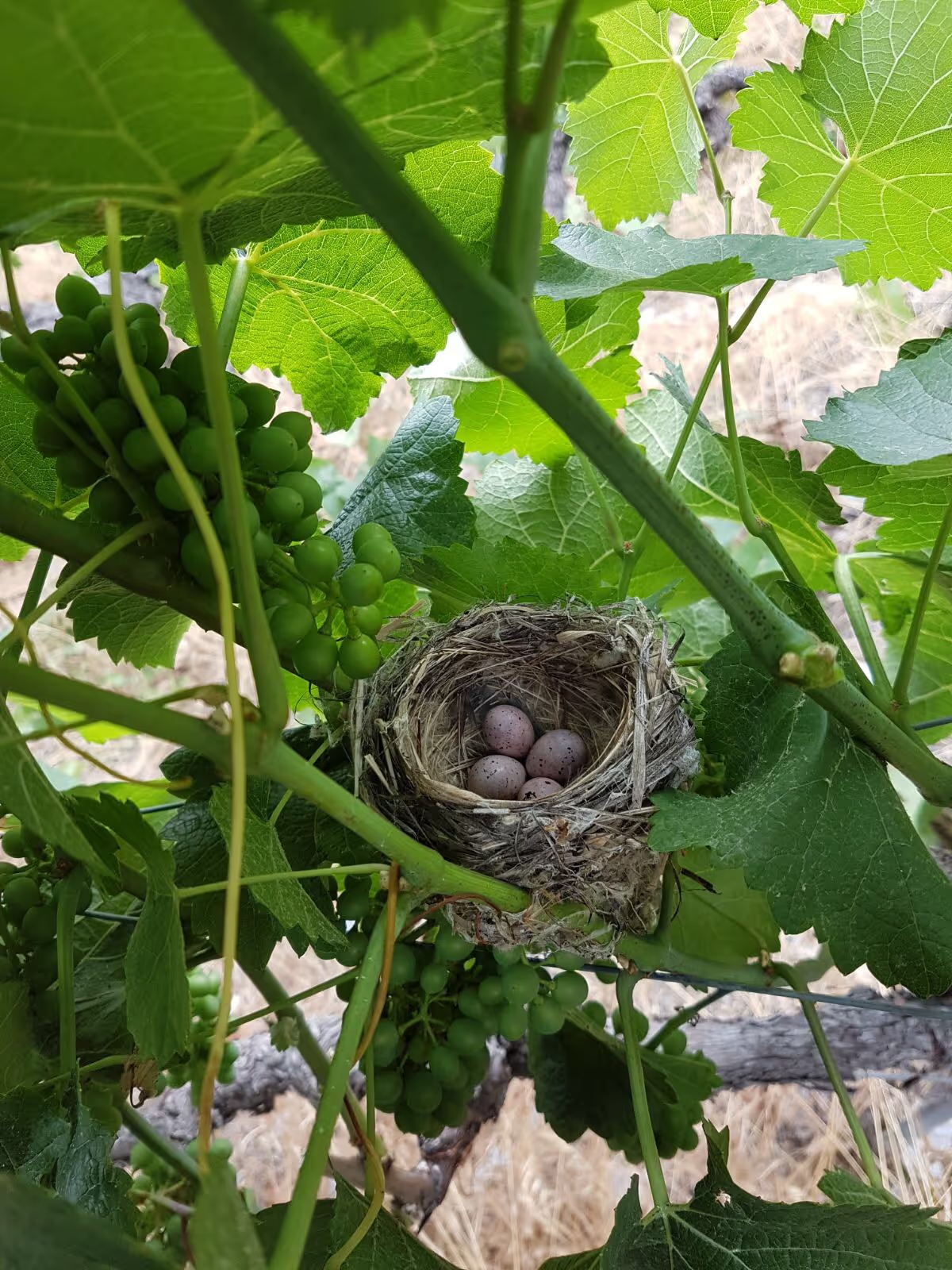
We actively protect and promote native species while combating neophytes— invasive, non-native plants.
We achieve this through particularly gentle soil management in our vineyards, which preserves natural habitats, and through the care and maintenance of dry-stone walls, providing valuable refuges for numerous animal species.
Additionally, we create ecological and agricultural niches where flora and fauna can thrive undisturbed. By planting site-appropriate shrubs and grasses, we establish habitats that sustainably enhance the diversity of insects, plants, and animals, fostering a stable ecological balance.
We actively influence soil life, erosion, water retention, and nutrient availability, while counteracting soil compaction. This creates more resilient and vibrant soils: we increase biomass, keep soil temperatures lower with a protective cover, and provide more minerals, nutrients, and water. At the same time, we promote the formation of a stabilizing humus layer. Herbicides are unnecessary, and erosion is naturally controlled. In addition, we sequester carbon, improving our overall CO₂ balance.

To ensure impeccable harvest quality, we use plant protection products very deliberately and only at the absolute minimum required.
We choose targeted products that do not harm beneficial vineyard organisms such as bees, ladybugs, or predatory mites. During application, we take great care to avoid drift and runoff, protecting the surrounding nature and water bodies.
This includes precise application techniques, regular and professional maintenance of our machinery, and the use of modern, environmentally friendly methods. Plant protection is taken very seriously at our winery - while never forgetting to protect the Chief in the process.
Vitiforst links vineyards with trees and shrubs, creating vibrant and diverse wine landscapes.
Woody plants provide shade, break the wind, enhance soil fertility, and offer habitats for beneficial organisms. They help retain water, sequester CO₂, and stabilize the microclimate—for the benefit of both the vines and nature.
This approach leads to a viticulture that is more resilient, biodiverse, and climate-friendly. We also plant fruit trees such as vineyard peaches, quinces, figs, and mirabelles, bringing variety to our vineyards and to the family table.
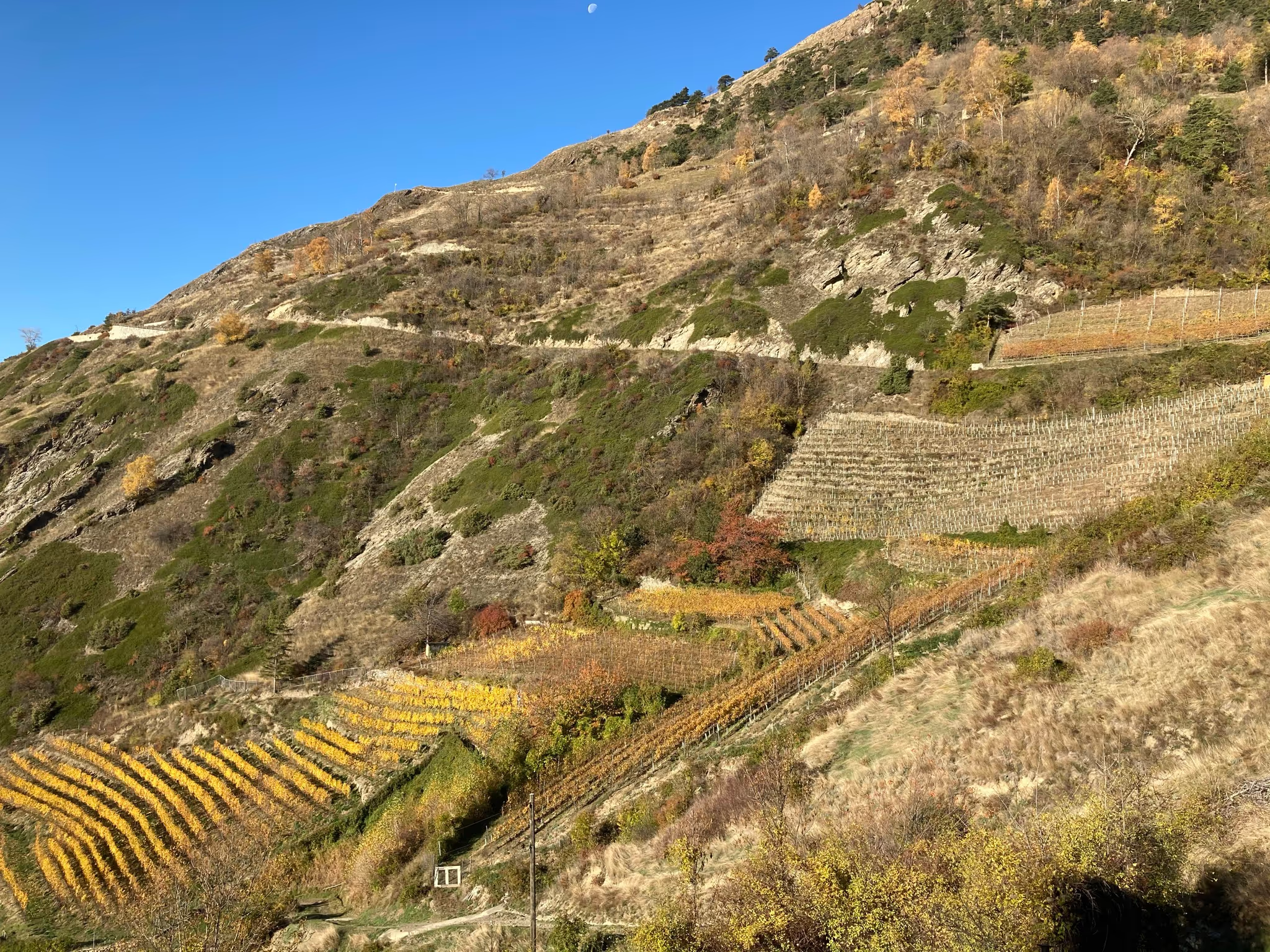
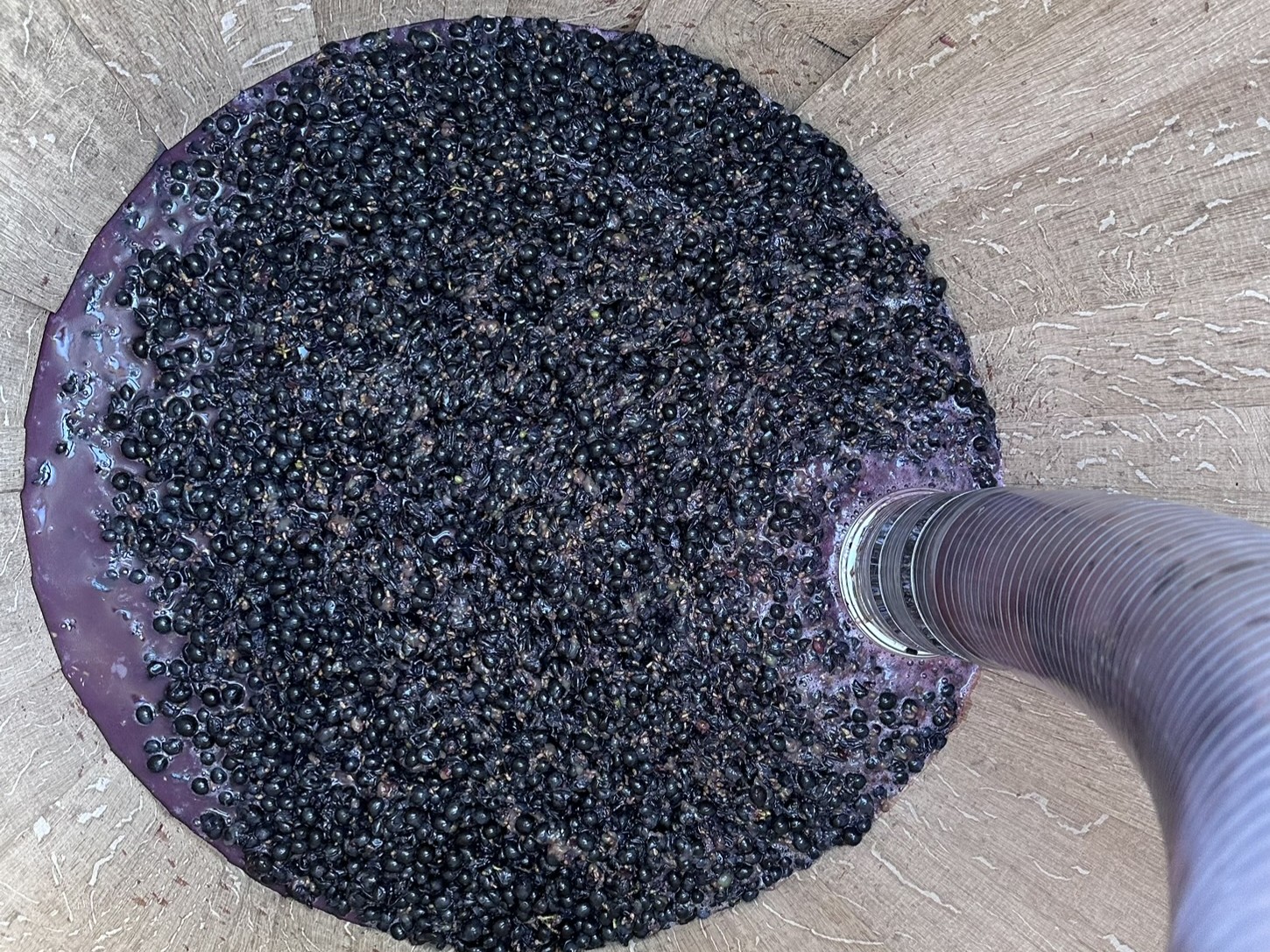
Our wines are carefully vinified and matured using modern techniques, allowing them to develop over time or to be enjoyed immediately after purchase, according to personal preference.
In addition to French barriques, we also use wood from local forests and regional production. And because standing still is not an option for us, we continuously invest in the modernization and improvement of our infrastructure.
For us, sustainability begins with small actions – yet their impact is far-reaching.
Whenever possible, we give materials a second life: our Jeroboam bottles are washed and refilled, and well-preserved cartons are reused. This reduces waste and conserves valuable resources.
We prioritize collaboration with local Valais and Swiss companies, supporting the regional economy. In daily operations, we also use energy, water, and paper sparingly. Efficient lighting, optimized workflows, and conscious practices help keep our ecological footprint as small as possible.
For us, sustainability is not just about efficiency—it is a sign of respect: for nature, for our wines, and for the people who enjoy them.
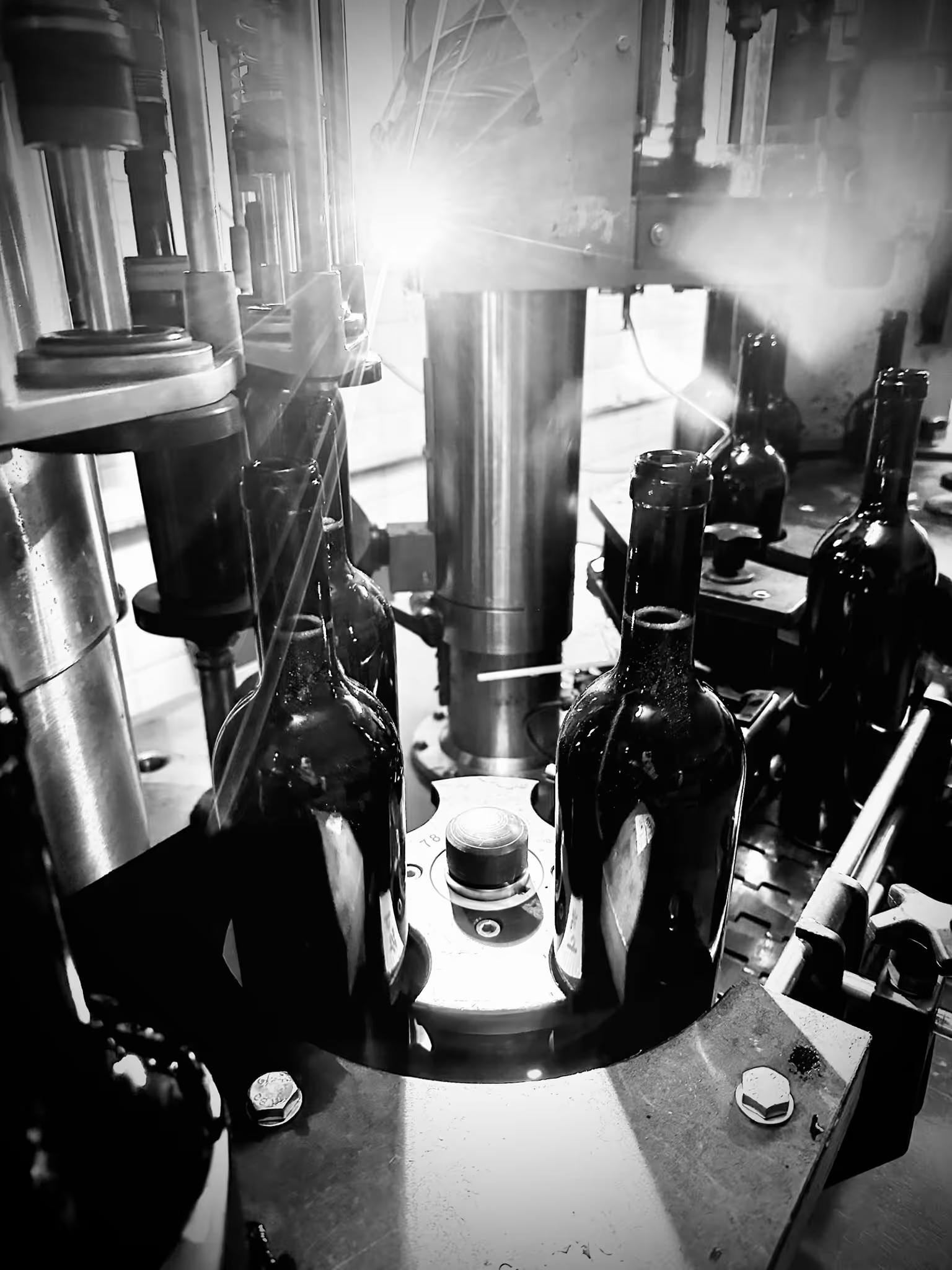

We manage all our vineyards according to the guidelines for nature-friendly and sustainable production set by Vitiswiss and its cantonal body, Vitival.
Since March 2015, Stéphane has served as president of Vitival, actively promoting a future-oriented wine production in the Canton of Valais and across Switzerland.
All our wines carry the Vinatura label—a quality seal that views sustainability as a holistic concept, ensuring the highest ecological standards both in the vineyard and in the cellar. For purely aesthetic reasons, we deliberately choose not to display the logo on our bottles.

We work with reliable partners such as the Swiss Post and Planzer Transport: wines are loaded directly at our winery and transported to the distribution center in Conthey. From there, the main leg of the journey takes place overnight by freight train across Switzerland—resource-efficient and environmentally friendly. Trucks then handle the final delivery to the customer.
For our private clients, we also use Vinotransport, a specialist service that personally delivers orders from various wineries in selected regions—convenient, reliable, and offering a direct connection from the cellar right to the doorstep.
